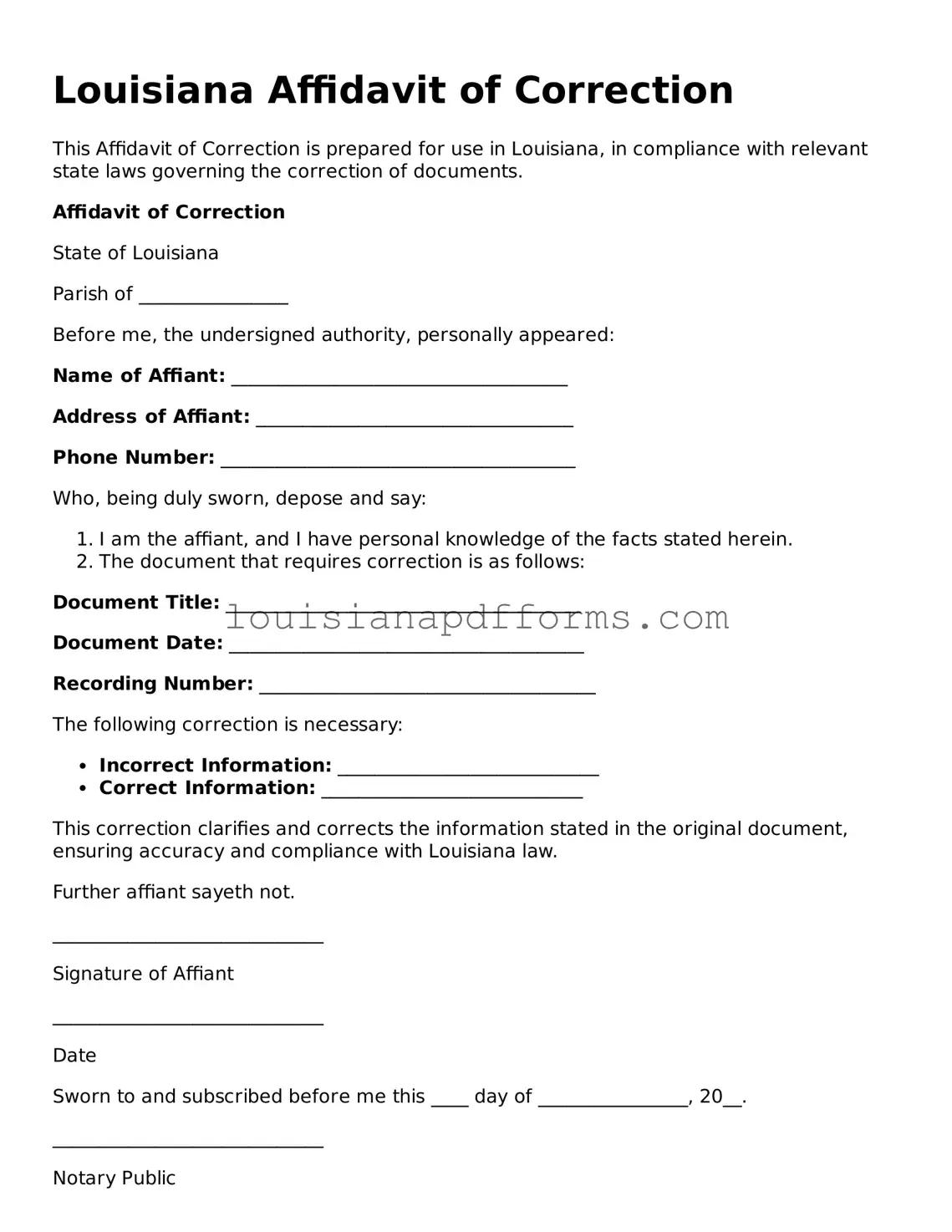Louisiana Affidavit of Correction Form
The Louisiana Affidavit of Correction form is a legal document used to amend or correct errors in public records. This form ensures that any inaccuracies are officially rectified, maintaining the integrity of important documents. Understanding its purpose and proper usage is essential for anyone needing to make corrections in Louisiana's public records.
Access My Document Now

Louisiana Affidavit of Correction Form
Access My Document Now

Access My Document Now
or
Free Affidavit of Correction
You’re halfway through — finish the form
Edit, save, and download your completed Affidavit of Correction online.